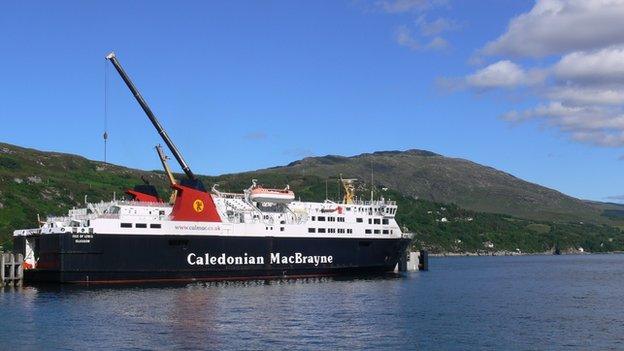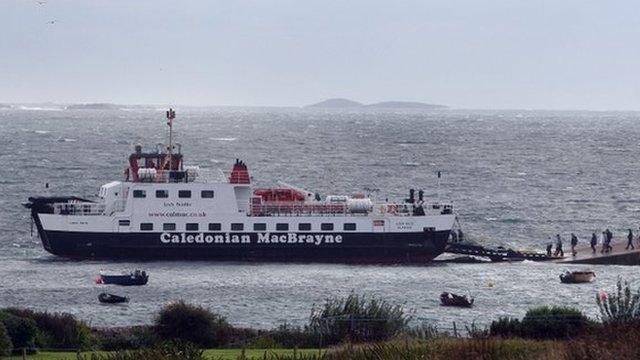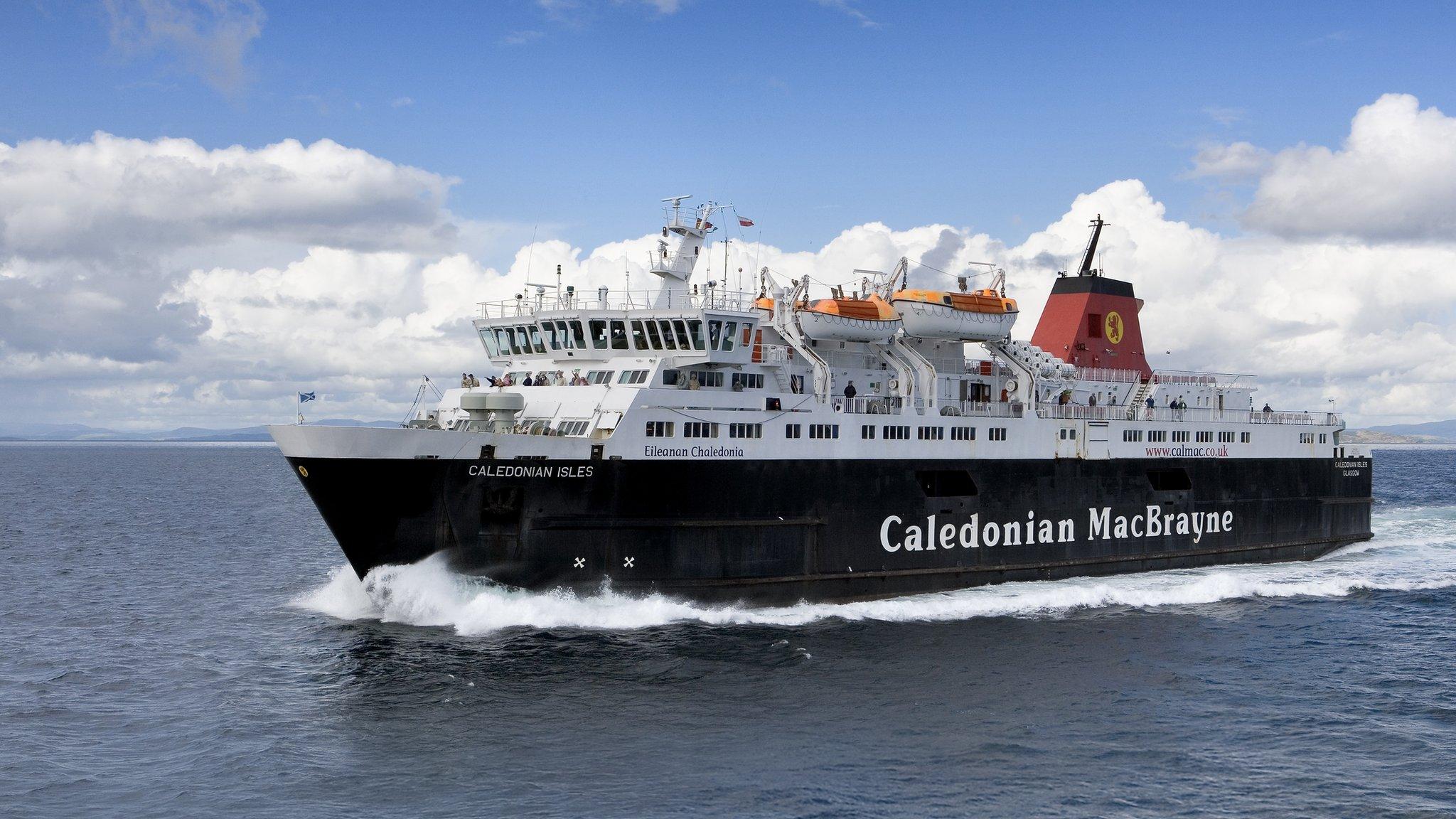Three days of ferry disruption caused by CalMac industrial action
- Published

Hundreds of Caledonian MacBrayne staff have begun industrial action that will cause three days of ferry disruption across the west coast.
The crews want reassurances about future jobs, pay and pensions now that the company's routes have been opened to competitive tender.
Ten of CalMac's 27 routes have been disrupted so far.
Scottish ministers have urged workers to call off the action and reopen negotiations.
Members of the RMT union will follow two days of work-to-rule - effectively an overtime ban - with a full strike on Friday.
Of CalMac's 1,400-strong workforce, almost half are members of the RMT. More than 90% of the members who voted in the ballot were in favour of an all-out strike.
The tendering process required by European law for services run by state-owned CalMac worries the ferry firm's workforce.
Private company Serco is competing to operate the Clyde and Hebridean ferry routes, and the RMT want guarantees on terms and conditions, staffing levels and pensions.
Calmac expect to run the majority of ferries over the next two days but can't yet say how they will cope with hundreds of staff walking out on Friday.
Maritime regulations mean ferries can only sail with a set number of seagoing staff on board and the union said most ships will have to be tied up in port.

Where to get information
CalMac has published a list of revised timetables here., external The company is advising travellers to check them regularly, as they are subject to change.
You can follow live updates on twitter on Calmac's twitter profile, external, or BBC Travel Scotland's, external.
If you will miss a mainland hospital appointment due to the disruption, you can call the hospital appointment hotline on 0156 382 7070 for help.

Deputy First Minister John Swinney said on Tuesday that both parties should continue discussions to try to reach an agreement.
"We are all working together to try and minimise the impact of this industrial action at a crucial time for the islands' economies that are served by these lifeline services," he added.
Transport Minister Derek Mackay said: "I have already provided assurances that a fair, affordable and sustainable pension scheme will be protected under the new Clyde & Hebrides ferry services (CHFS) contract."
He said the government stood ready to support the islands during this "testing time".
The managing director of CalMac, Martin Dorchester, said the company was disappointed that the dialogue with the RMT had broken down.
"We will continue to do all we can to ensure that disruption to these lifeline services are kept to a minimum," he said.
"However, the travelling public needs to be aware that disruption is inevitable and that they should consider carefully whether their trip is essential before travelling later this week.
"Our door remains open. We urge union representatives to re-enter dialogue with us as soon as possible and to give urgent consideration to our offer to avoid what we believe will be unnecessary pain to the travelling public."
General secretary Mick Cash said: "It is extraordinary that rather than standing up for Scotland's lifeline ferry services, those who hold political power have resorted to ludicrous arguments about what does and doesn't represent privatisation. That is a kick in the teeth for loyal and hard-working staff who have given long hard years of service at CalMac.
"RMT members on CalMac rightly feel that they are caught in the crossfire of an unnecessary and damaging tendering battle that leaves jobs, conditions and pensions hanging by a thread. That is simply intolerable.
"RMT wants cast iron assurances and we want them now and we are committed to engaging in meaningful talks around that agenda as we kick off the first phase of industrial action."

What has triggered the dispute?
CalMac's contract to run the Clyde and Hebrides ferry services comes to an end next year.
The Scottish government has put the contract out to tender, in line with European rules.
The RMT union has concerns that, regardless of who wins, the new contract will see changes in employees' current terms and conditions.
A reduction in staff numbers and pensions are key areas of concern.
The RMT has asked that the government guarantee in the new contract that compulsory redundancies do not happen and existing terms and conditions are continued.
- Published24 June 2015

- Published22 June 2015
